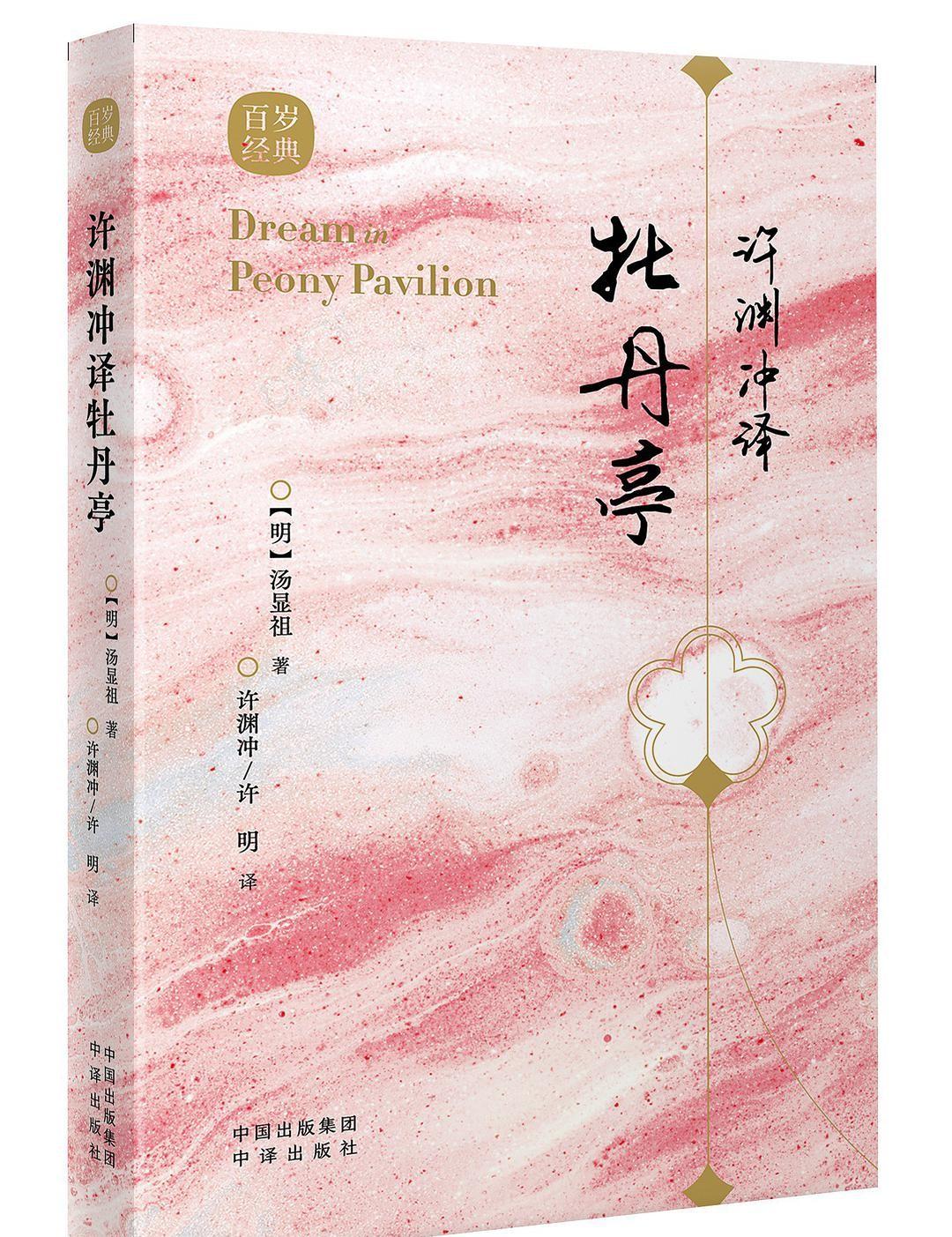Previously recommended Xu Yuanchong's works: "Xu Yuanchong's Translation of Li Yu's Selected Words" and "Xu Yuanchong's Translation of Bai Juyi's Selected Poems". Both of these works are among the books in the 100-year-old classic series produced by China Translation Publishing House in 2021. In this 100-year-old classic series, there are ten poems passed down from generation to generation, seven selected poems by famous artists, and four classical famous plays.
Today, I want to recommend one of the four classical famous dramas - "Xu Yuanchong's Translation of Peony Pavilion".

"Peony Pavilion", one of the four classical poetry dramas in China, is the work of the Ming Dynasty playwright Tang Xianzu, which is also known as "Returning the Soul Dream".
"Peony Pavilion" tells the story of the love between the official Qianjin and the poor scholar: Qianjin died from a dream wound, turned into a soul, and later met with the scholar, came to a love that crossed races and life and death, for popular people, it is that people and ghosts are not in love, they fall in love. In the end, God's turning point is that Qianjin actually came back from the dead, and the final finale is also the one we like the most: the official Qianjin and the poor scholar finally came together.
This "Xu Yuanchong Translation Peony Pavilion" is 32 open, and the size is 840 *1092. The cover color uses a dreamy pink gold color, which echoes this love story, and the calligraphic font of the title on the cover is calligraphic.
This book is a stage book, co-translated by Xu Yuanchong and Xu Ming. The whole book is divided into five parts, which can be directly played as a stage play, according to the order of character appearance, each person's lines are marked, and even have notes in each part, which can be described as very detailed.
In "Xu Yuanchong's Translation of Peony Pavilion", we can enjoy the wonderful translation of the translation master Xu Yuanchong, and at the same time, we can also understand the historical customs and habits of classical poetry and drama at that time, and we can also appreciate the classic famous sentences of the play.
For example, the end of the appearance refers to playing the role of an older man, and at the same time, the birth refers to the male protagonist. In addition to the birth year, male characters also have extras, net, ugly and so on.
But acacia is not negative, peony pavilion on the three life road.
If you are worthy of her love,You'd win a new life from above.
This is a classic sentence in "Peony Pavilion". It is not only the role of the play, but also the summary of the plot of the whole book. Sansheng Road refers to the two people from the birth, after death, reborn, the hard journey of the three roads on the peony pavilion and finally the lovers finally become dependents.
It turned out that Zi Yan was red all over the place, and it seemed that all of them were paid with the broken well.
A riot of deep purple and bright red,What pity on the ruins they overspread!
Good day beauty, enjoy the pleasure of whose yard!
Why does Heaven givs us brilliant da and dazzling sight?
Whose house could boast of a sweeter delight?
This is an excerpt from the most famous piece of music in "Peony Pavilion", which can be regarded as a classic song, and in this lyric, it reflects the mood of Miss Du when she visited the garden. When this spring color comes into view, Miss Du first marvels at the beauty of the spring color, followed by a turn, the spring color of the courtyard contrasts with the broken courtyard. The strong contrast between the front and the back also implies that Miss Du's mood is also the same.
Then you are like a beautiful flower, like a year of water.
Don't uou know floral beauty disappears
With running water and fleeting years?
Famous sentences such as these allow us to discover the beauty of classical literature. "Xu Yuanchong's Translation of Peony Pavilion" takes us to read the classical famous drama "Peony Pavilion", and recreates the beauty of Chinese in beautiful English, making us fall in love with English and Chinese classical literature.